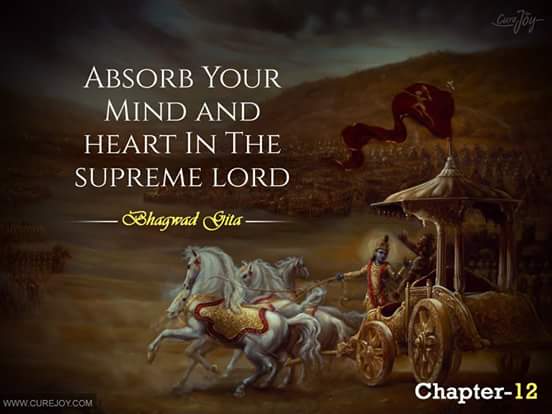The Spiritual Import of the Mahabharata and the Bhagavadgita : Ch -18.8

Chapter -18: Fix Your Mind on Me Alone-8. So here is the central theme of the twelfth chapter before us, after which the characteristics of a real devotee are described. A real devotee is one who hates not or loves not anything in this world in an exclusive manner, but is compassionate, merciful and equanimous in his attitude towards all things; principally one who shrinks not from anything and one who does not conduct oneself in such a way as to be shrunk away from by others. "Yasman nodvijate loko lokn nodvijate ca yah" : - One who does not regard oneself as a proprietor of anything. You have no propriety right over anything—"aniketah sthira-matir." Aniketah is one who has no habitat. Even the house you live in is not your house. You are a trustee, as it were, a caretaker of the so-called property which appears to be invested upon you but of which you are not the owner in any manner whatsoever. Who can say that we are the owners of anything...


